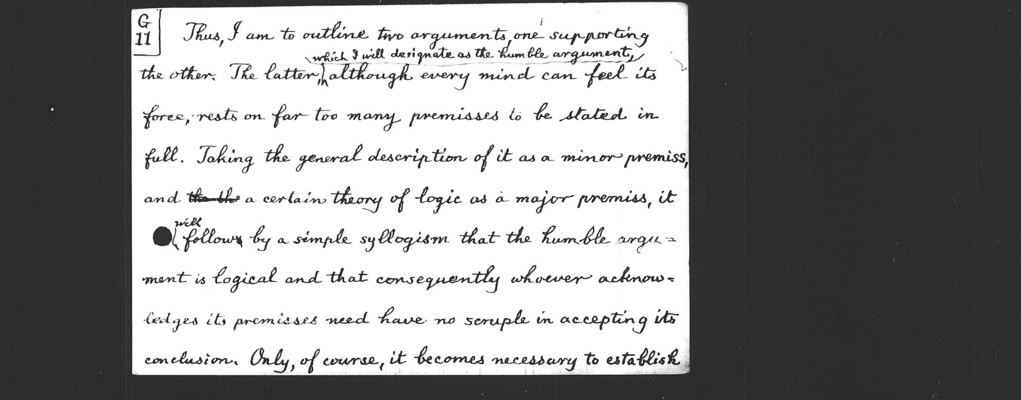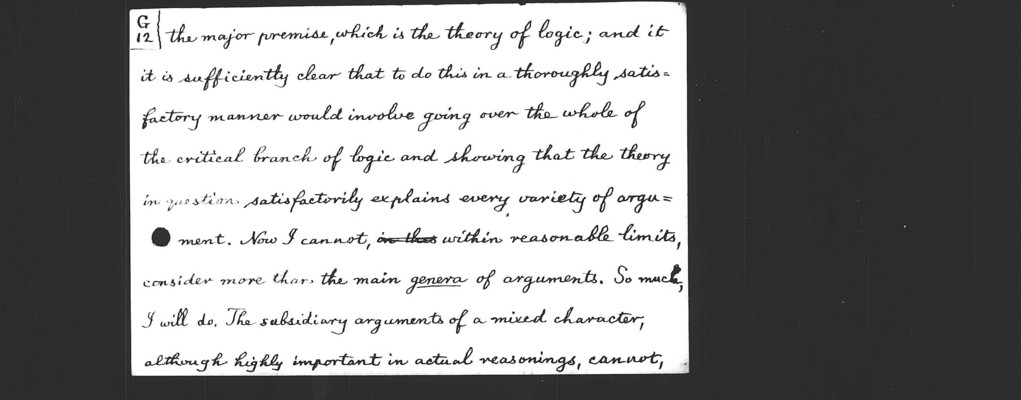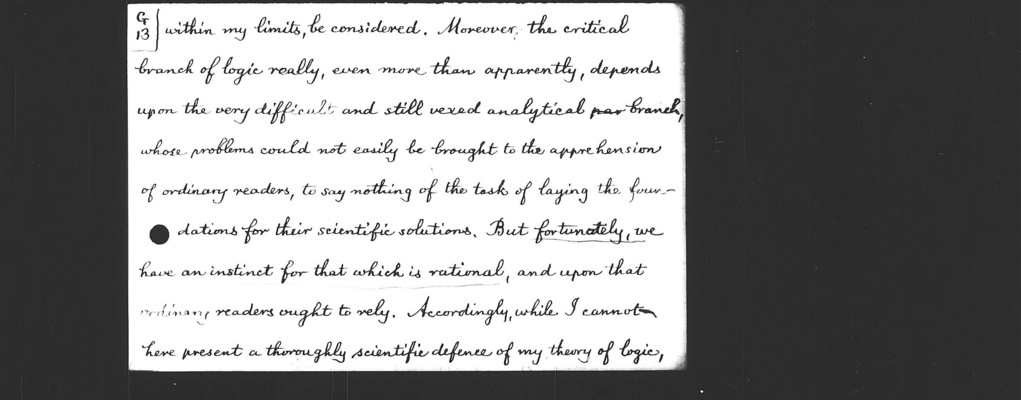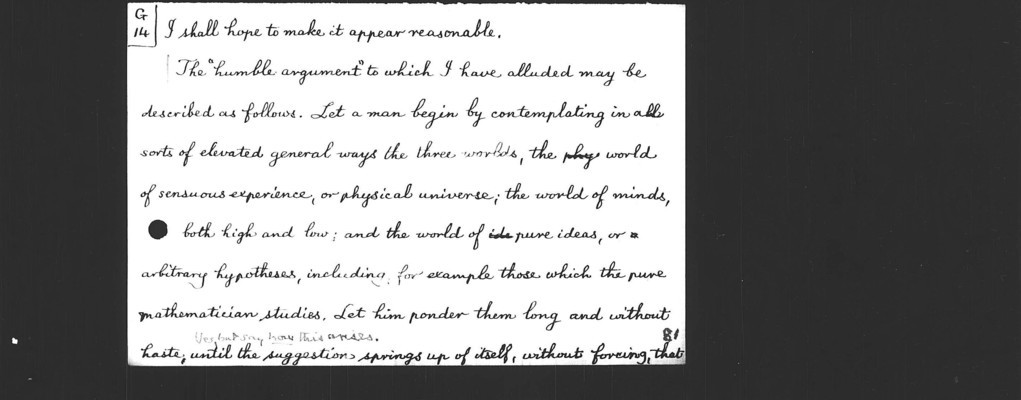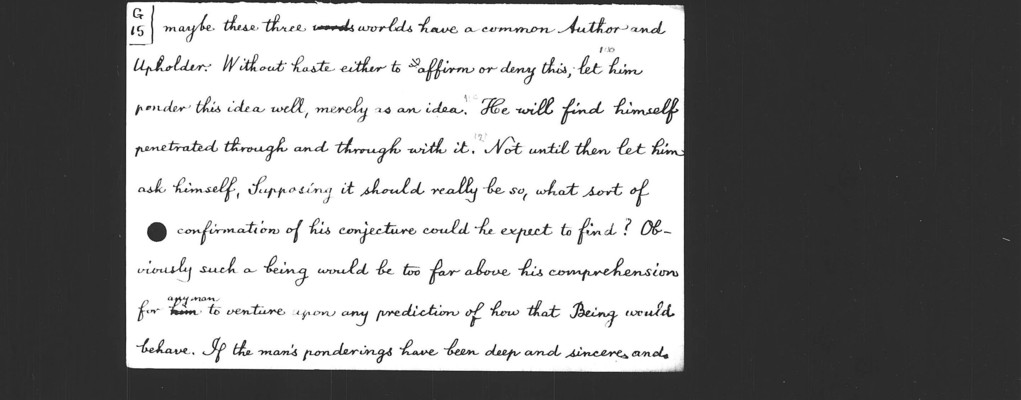Pages
11
G11
Thus, I am to outline two arguments, one supporting the other. The latter, which I will designate as the humble argument, although every mind can feel its force, rests on far too many premisses to be stated in full. Taking the general description of it as a minor premiss, and the th a certain theory of logic as a major premiss, it will follows by a simple syllogism that the humble argument is logical and that consequently whoever acknowledges its premisses need have no scruple in accepting its conclusion. Only, of course, it becomes necessary to establish
12
G12
the major premise, which is the theory of logic; and it is sufficiently clear that to do this in a thoroughly satisfactory manner would involve going over the whole of the critical branch of logic and showing that the theory in question satisfactorily explains every variety of argument. Now I cannot, in this within reasonable limits, consider more than the main genera of arguments. So much, I will do. The subsidiary arguments of a mixed character, although highly important in actual reasonings, cannot,
13
G13
within my limits, be considered. Moreover, the critical branch of logic really, even more than apparently, depends upon the very difficult and still vexed analytical per branch, whose problems could not easily be brought to the apprehension of ordinary readers, to say nothing of the task of laying the foundations for their scientific solutions. But fortunately, we have an instinct for that which is rational, and upon that ordinary readers ought to rely. Accordingly, while I cannot here present a thoroughly scientific defence of my theory of logic,
14
G14
I shall hope to make it appear reasonable.
The "humble argument" to which I have alluded may be described as follows. Let a man begin by contemplating in all sorts of elevated general ways the three worlds, the phy world of sensuous experience, or physical universe; the world of minds, both high and low; and the world of ide pure ideas, or a arbitrary hypotheses, including, for example those which the pure mathematician studies. Let him ponder them long and without haste, until the suggestion springs up of itself, without forcing, that Yes, but say how this arises.
15
G15
maybe these three words worlds have a common Author and Upholder. Without haste either to affirm or deny this, let him ponder this idea well, merely as an idea. He will find himself penetrated through and through with it. Not until then let him ask himself, Supposing it should really be so, what sort of confirmation of his conjecture could he expect to find? Obviously such a being would be too far above his comprehension for him any man to venture upon any prediction of how that Being would behave. If the man's ponderings have been deep and sincere, and
